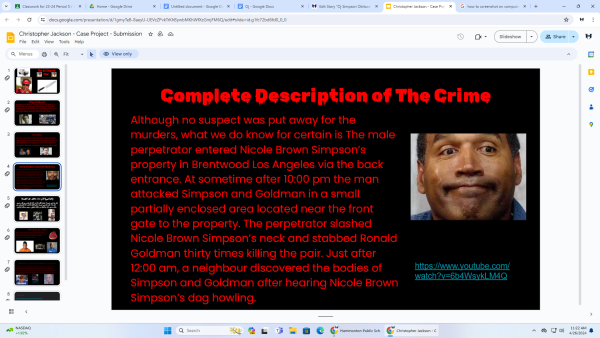Student Rights in School: What are the limitations?

Hoodies. Cell phones. No swearing. Do students really have “freedoms” while they are in school?
This issue is always something that students want to talk about, but many fear getting in trouble for speaking out about it.
The first amendment in the Bill of Rights includes a variety of freedoms that citizens of the United States are entitled to: free speech, free press, free association and freedom from unwarranted search and seizure. Many students explain that, in their opinion, the most common violation of a minor’s rights in school is freedom of speech. However, as the Supreme Court has decided, the First Amendment does not mean anyone can say whatever they want at any time.
There are limitations. The Court does not protect speech that falls into the following categories: clear and present danger, fighting words, libel and slander, obscenity or time, place and manner.
If you yell fire and there is none, that falls under “clear and present danger” and you will be prosecuted. If you said something to intentionally provoke a fight, you are not protected by the first amendment. You don’t have the right to say something that could possibly damage someone’s reputation either; this is included under “libel and slander.” Also, one must distinguish “obscene” material, speech not protected by the First Amendment, from “indecent” material, speech protected for adults but not for children.
What many students don’t realize is that legally, they don’t necessarily have the right to say something at a certain time and place or if you say something that messes with a legitimate government interest.
Turns out there are some limitations on a citizen’s freedom. What adds even more limitations to the list? Being a minor in a public school
There are some teachers that believe that students do and should have all the freedoms of speech that are protected by the law. Mr. Anthony Angelozzi, a US history teacher, is especially passionate about the cause.
“Students should have freedom of speech. The opinions and expressions of students are essential parts of the educational process,” he said. “In history class, particularly student perspectives enhance instruction and lead to critical thinking.”
Hall monitor Jeff Long says that the limitations on the first amendment are there to keep students (and adults, too) under control. Students shouldn’t be able to say whatever they want because it goes along with screaming fire in a movie theater or in an unsupervised area. Students should not be able to say and do what they want. He believes they need the guidelines to ensure good behavior.
Sophomore Alexus Leary gets frustrated by school rules.
“I want to be able to say whatever I want and go to the bathroom whenever I want,” she said. If she could change anything about the freedoms that she has, she would change the hoodie rule and the time in the hallway before classes.
Kelsey Baird, also a sophomore, wants more freedom in the classroom to explain how she feels.
Freshmen Jaqwan Govens not only wants a stronger sense of freedom to speech in the classroom setting but also the freedom to come and go in the classroom.
So how can the school get away with regulating so much of student life and speech that the government can’t (such as whether or not you can leave and go to the bathroom)?
It is something called “loco parentis”. This means that while a student is in the custody of the school, the school can act as a parent. Another basic reason for a violation would be that teachers are trying to educate. If an act of a student can interfere with the educational process, that act may, in many cases, be supervised and regulated.
The school cannot justifiably make students do whatever it wants them to, though. For example, in the case Board vs Barnette, the Supreme Court ruled that students could not be forced to say the pledge of allegiance or salute the flag against their will.
Mrs. Christine Throckmorton, an art teacher, believes that there is an expectation for both students and staff to follow the code of conduct and to be respectful while in school. She also believes that this expectation doesn’t infringe the right to speak freely.
Is every policy perfect? No, she admits.
“[I’d give students] the right to wear hoodies, so I’m not the hoodie police,” she said.










